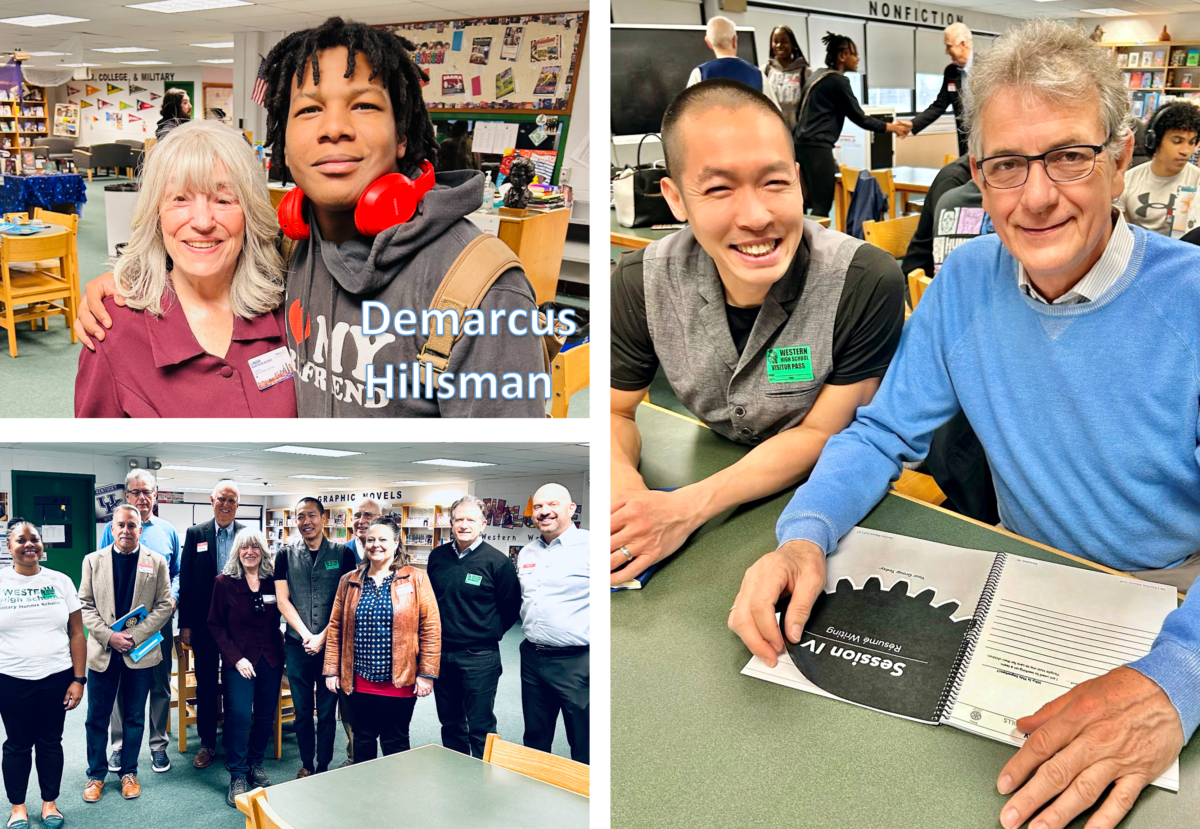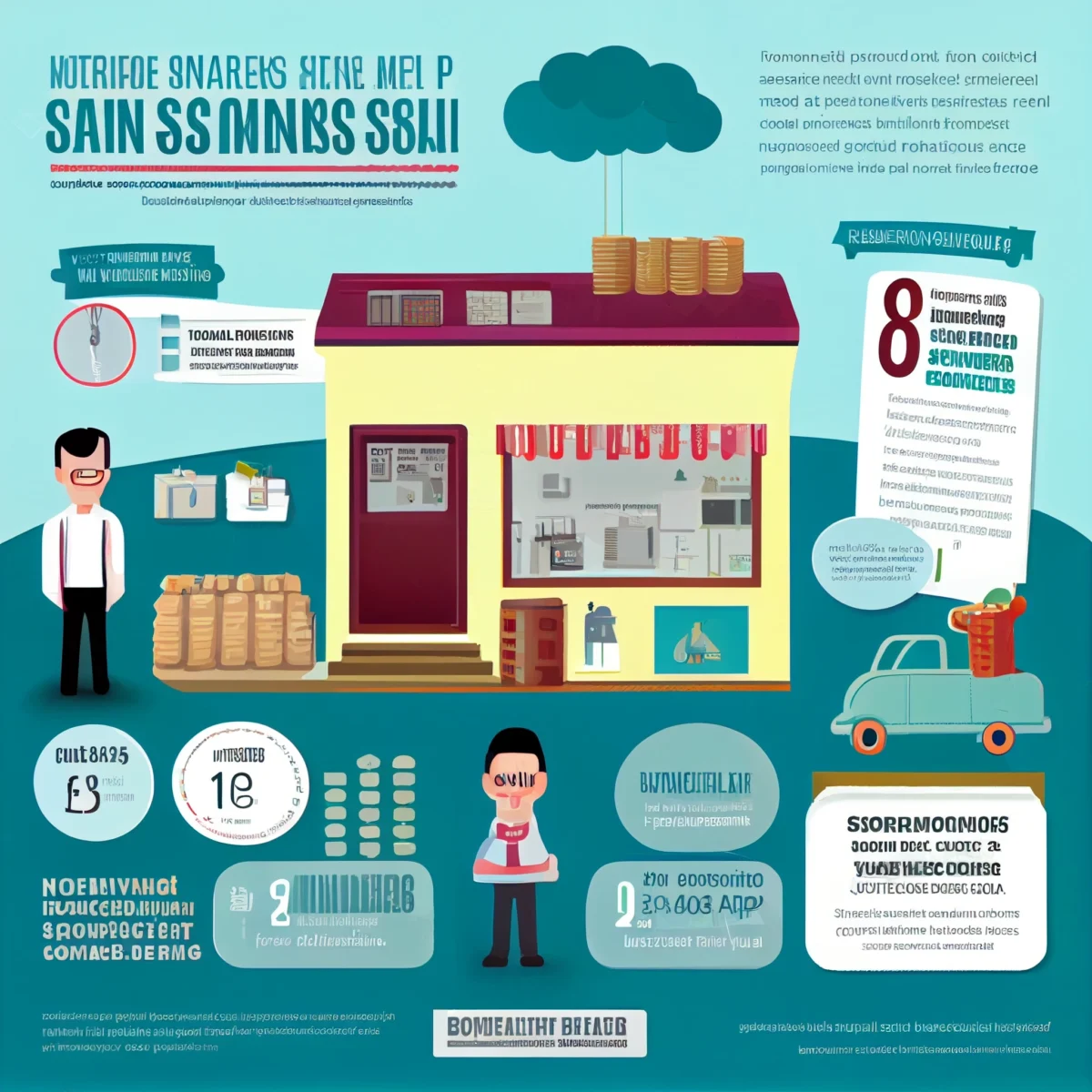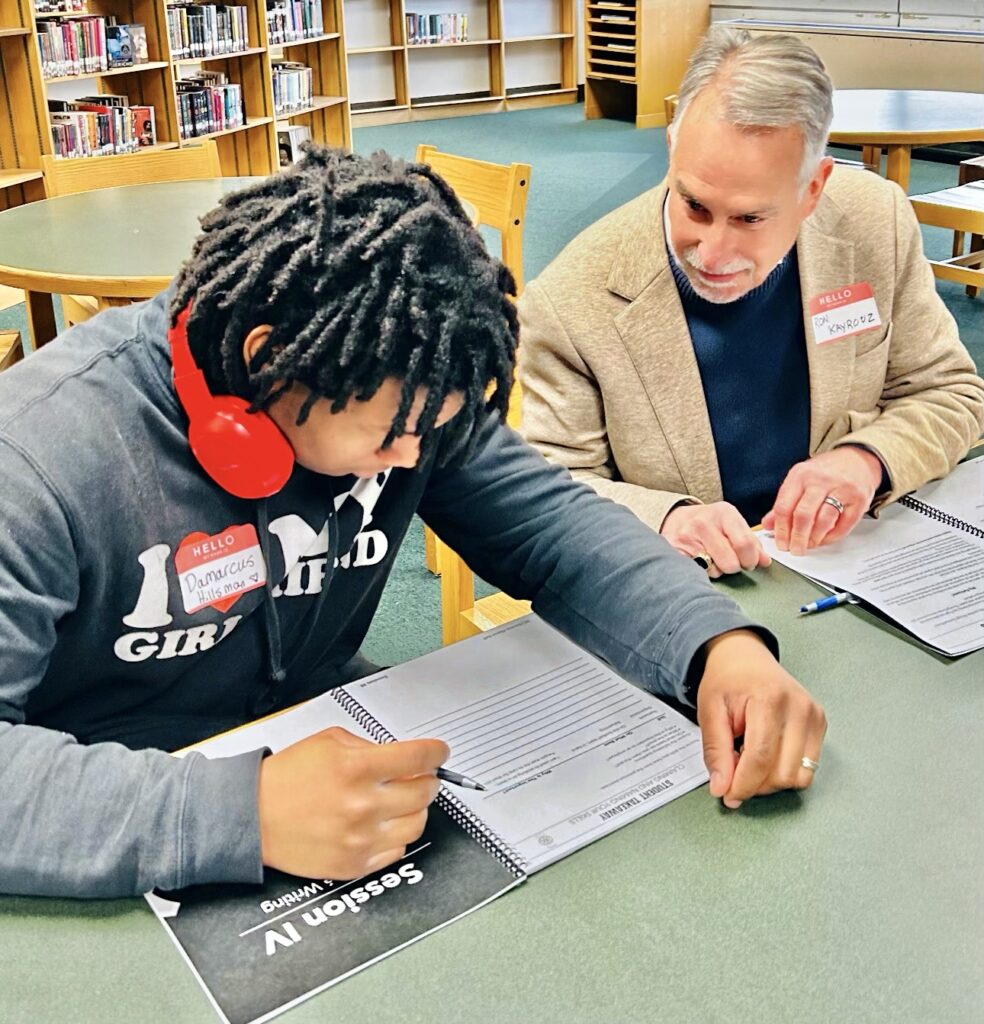
In the heart of Louisville, Kentucky, a young man named Demarcus Hillsman is setting a remarkable example of kindness, leadership, and personal initiative. On a crisp Tuesday morning, the Rotary Club of Louisville gathered at Western High School for the Rotary Honors Scholars Mentoring Program, focused on resume writing and interview preparation. Among the attendees was Di Tran, a dedicated volunteer mentor and a respected figure in the community. Little did he know that he was about to witness a display of character that would leave a lasting impression.
As the session commenced, Demarcus was one of the first students to arrive in the library. What set him apart was not just his punctuality, but his genuine warmth and professionalism. Without any hint of pretense, he went around the room, shaking hands with each mentor, introducing himself with a humble and friendly demeanor. It was a simple act, yet it spoke volumes about his character.
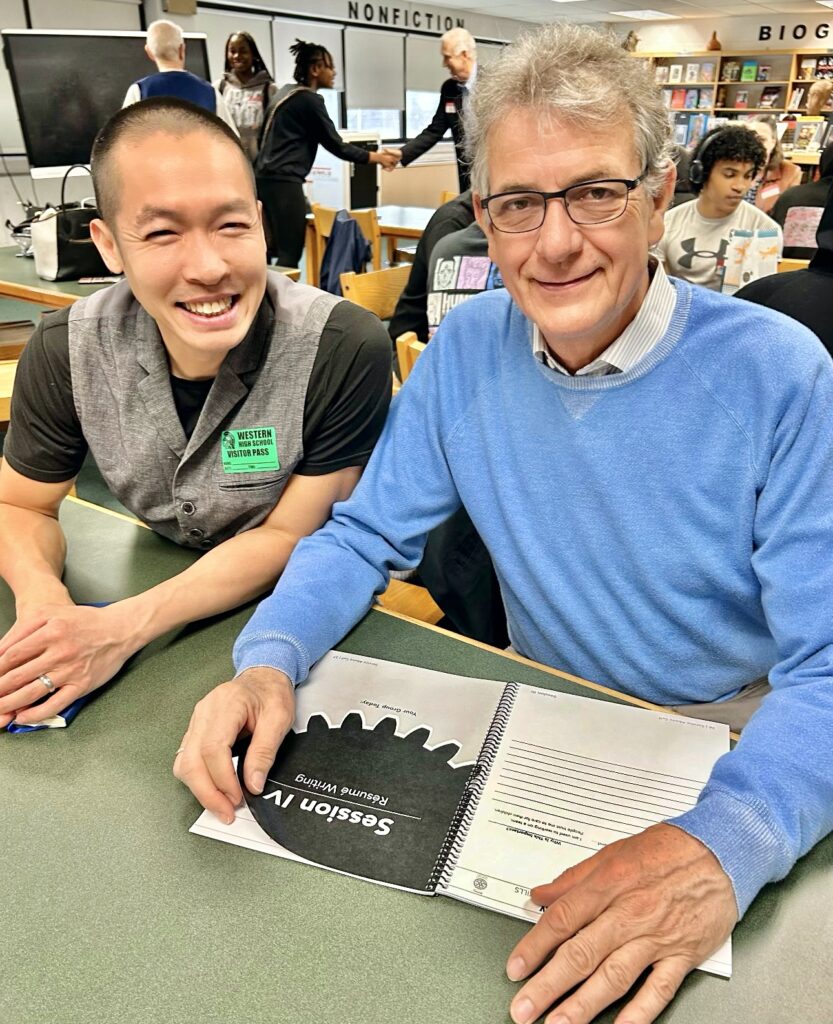
What struck Di Tran most was Demarcus’s sense of responsibility. He openly admitted that he was tasked with rallying his peers for the mentorship session and took full accountability for the turnout. This wasn’t just about showing up; it was about owning his role and accepting the outcome, regardless of its success. This level of personal initiative and leadership is rare, even among adults, and it resonated deeply with Di Tran.
The theme of the day was resume writing, and as Di Tran and other mentors guided Demarcus through the process, his natural ability to showcase his achievements, learnings, and problem-solving skills was evident. He didn’t just list his accomplishments; he demonstrated a deep understanding of their value and the lessons they imparted. This wasn’t a rehearsed performance; it was an authentic reflection of his approach to life.
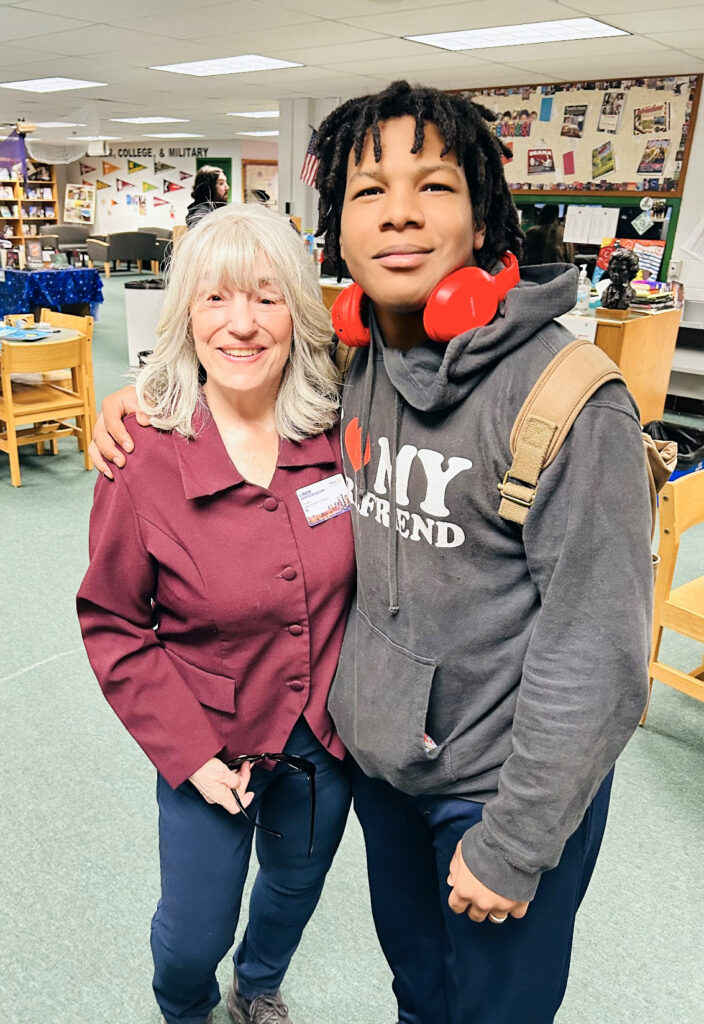
Di Tran couldn’t help but commend Demarcus for his rare quality of personal initiative, a trait emphasized by Napoleon Hill in his teachings. To this, Demarcus responded with a humility that was both refreshing and enlightening. “I don’t know, but I just know to do what is in front of me,” he said. It was a simple statement, yet it captured the essence of true wisdom and maturity.
As the session concluded, Demarcus’s gratitude was palpable. He thanked each mentor with a warmth that was heartfelt and sincere. Di Tran left the session feeling not just hopeful for the future of Louisville but also inspired by the younger generation’s potential. Demarcus Hillsman, with his natural leadership, personal initiative, and kind-heartedness, is a beacon of hope and a testament to the positive impact one individual can have on their community.
Di Tran’s parting words to Demarcus were a blessing and a recognition of his innate qualities: “God bless you, sir, you’ve got it. Just keep doing it.” In a world where kindness and personal responsibility are needed more than ever, Demarcus Hillsman stands out as a true face of kindness, embodying the Rotary’s motto of “Service Above Self.”

